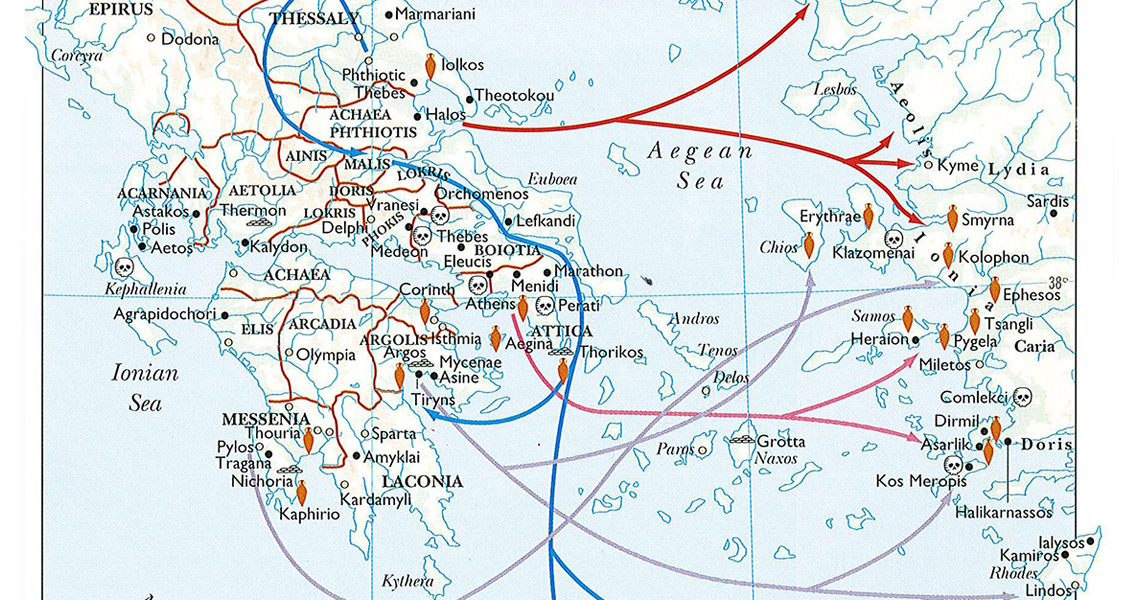<![CDATA[According to a new study, acidic soil may have destroyed crucial evidence about the causes of the Greek Dark Age. The study is also providing a new perspective on what the people of an ancient Greek village did for a living. The ancient Greek village of Nichoria is one of the last remaining sites that stood through both the Late Bronze Age and the Greek Dark Age. Previous research suggested that the Nichoria people had adopted the craft of cattle ranching, and this helped the village survive. Evidence of this cattle ranching came from the soil at the site, samples of which contained the bones of animals, including cows. The latest study however, suggests that other evidence may have been lost over time. This means an inaccurate picture could have been painted of Greek settlements during the Dark Age. In a presentation titled, 'The Good, the Bad and the Ugly at the Dark Age Ranch: Taphonomic Reinterpretations of Pastoralism at Nichoria, Messinia,' researchers suggested that soil development after the desertion of the site in the Dark Age led to inaccurate preservation of the historic record. Larger and thicker bones, like those of cattle, did not decompose, while other smaller bone fragments may have. The University of Cincinnati research team believes that other remains could have been ruined or lost due to acidic soil. There have been many explanations for the sudden collapse of Greek civilisation during the Dark Age, such as a foreign invasion or a catastrophic climatic event. "We were exploring this as evidence for a possible climate event, but the soil samples came back inconclusive," said W. Flint Dibble, a doctoral student at the University of Cincinnati (UC). "We actually think that as more of these sites are abandoned in the Dark Age, the landscape becomes very stable, and the weather destroys more of what's in the top upper layers than the archaeological material buried deeper below. At this site, we have no evidence that the destruction of bone was the result of climate change." Nichoria was first excavated in the 1960s by a team led by the University of Minnesota. The initial research implied that the people of the village survived the Dark Age by turning to cattle ranching. Dibble stated that now, "We're using modern biology to understand what is happening to ancient remains and we're finding that the bone is dissolving away. I've found teeth that are hollow because the dense enamel is still there, but the dentin is gone, which also tells me that more porous bone is dissolving away." The significance of this study lies in the fact that it is possible that something as simple as the soil environment could have destroyed bones and other types of archaeological evidence. Dibble and the rest of the UC research team will continue to excavate Nichoria, and plan on presenting their findings on January 9th at the joint annual meeting of the Archaeological Institute of America, and Society for Classical Studies, in New Orleans. Image courtesy of Wikimedia commons user: Robert Markot]]>
Acidic Soil Possible Cause for Lost Greek Dark Age Evidence
